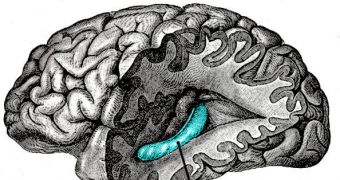For some time now, healthcare experts have been using a therapy called deep-brain stimulation (DBS) for addressing some of the most stubborn neurological and neuropsychiatric conditions. In a new study, experts managed to determine which neural pathways respond to the electrical therapy.
In this treatment, slender electrodes are place in the brain, and low-intensity electrical currents are used to transmit impulses to specific areas of the brain, especially those that control complex behavior.
Using a new approach, researchers at the Cold Spring Harbor Laboratory (CSHL) were able to determine that DBS is in fact stimulating the same nerve cells that are targeted by physical activity, and also drug compounds such as the famous Prozac.
Scientists published the results of their work as a cover paper in the upcoming, January 1 issue of the Journal of Comparative Neurology. The CHSL team was led by associate professor Grigori Enikolopov, PhD.
One of the main conclusions of the research was that DBS was responsible for stimulating a type of neurons that are in fact precursors to mature nerve cells that appear in the hippocampus.
This is an area of the brain that is in charge of controlling many aspects of our relationship with our environment, include spatial memory, emotion, behavior, long-term memory, and other higher cognitive functions.
Some of these functions have been demonstrated in other studies to go terribly wrong when a person develops conditions such as Alzheimer’s, Parkinson’s, epilepsy and depression, the team says.
“But the clinical application of DBS to treat neuropsychiatric disorders is still problematic because there isn’t a clear rationale or a guide for which brain regions need to be stimulated to achieve maximum therapeutic benefit,” Enikolopov explains.
“Our study now points to the brain region whose stimulation results in new cell growth in the hippocampus, an area that is implicated in many behavioral and cognitive disorders,” he adds.
“There is a well-established correlation between the use of antidepressants and new neuronal growth in the hippocampus,” the expert goes on to say.
“But what we didn’t know was which steps in the cascade of events that eventually leads to the birth of new neurons are actually affected,” he adds.
The journal entry detailing this study is called “Neurogenic hippocampal targets of deep brain stimulation.”

 14 DAY TRIAL //
14 DAY TRIAL //